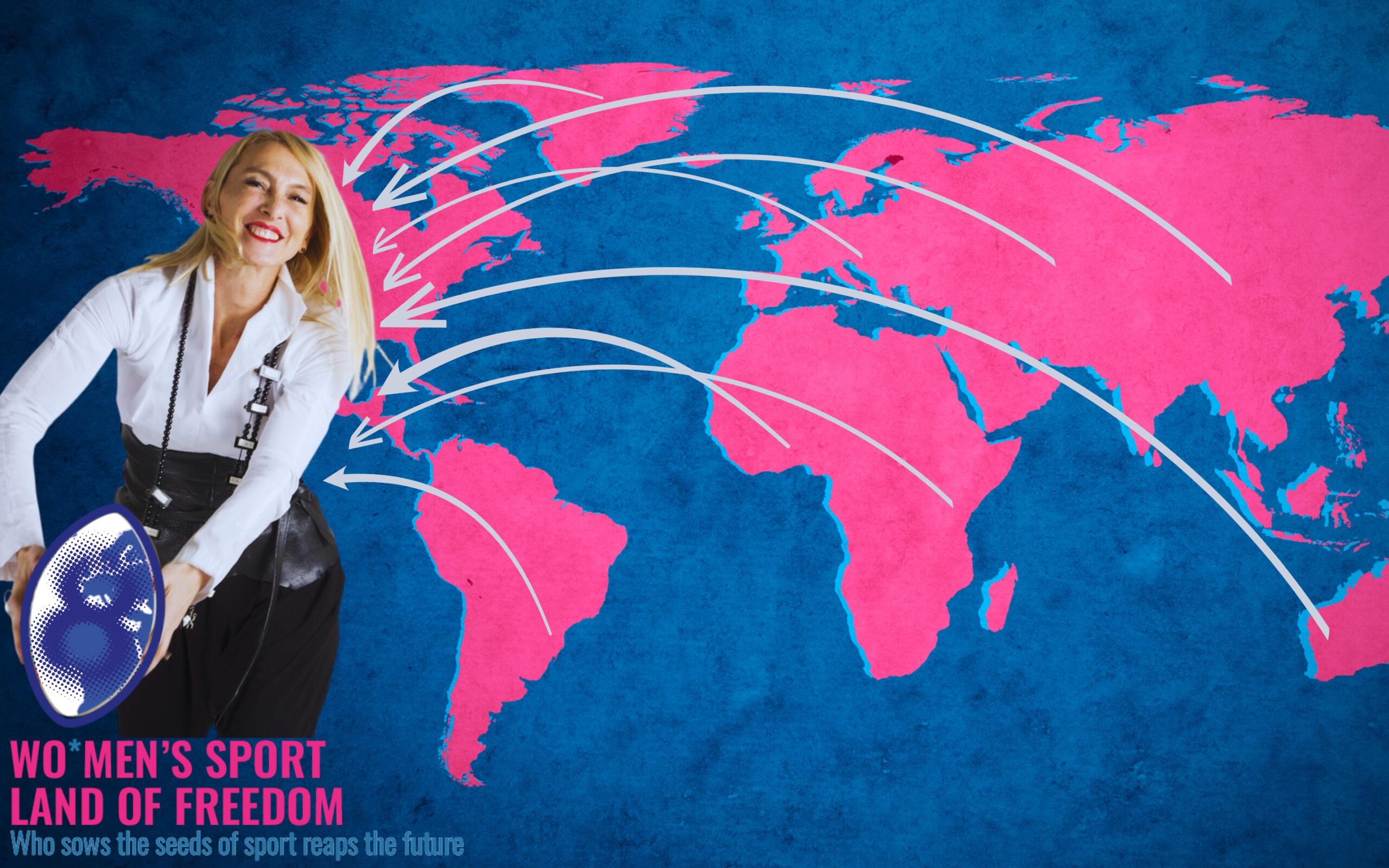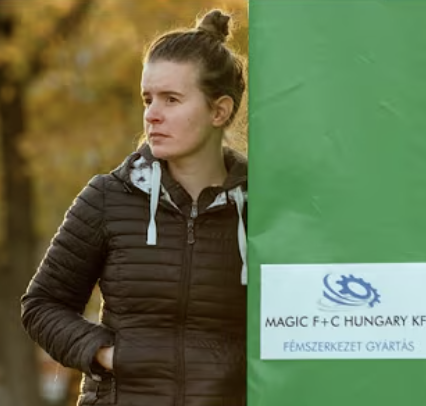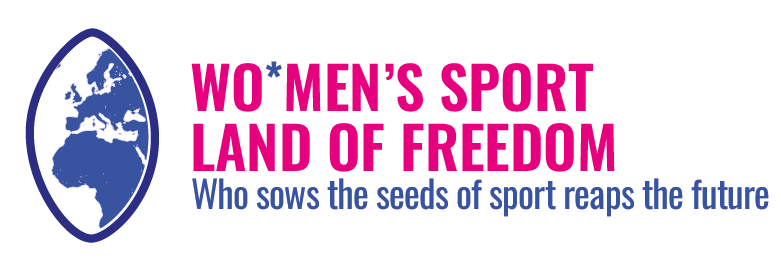
HUNGARY: I AN NOT A PLAYER, BUT IN 2013 MY HUSBAND AND I FOUNDED THE CLUB, STARTING FROM SCRATCH AND FOCUSING ON YOUTH DEVELOPMENT.
“I am not a player, but in 2013 my husband and I founded the club, starting from scratch and focusing on youth development.”

Thanks to:
Rekaval Kovacs
Director of rugby at Honfoglalók club
- The history of the women’s movement in Hungary
- Testimonials
- Reading time: 7 minutes
HUNGARY - Find out more
Hungary is a parliamentary republic in Central Europe with about 9.59 million inhabitants in 2024, with slightly more women than men. Women currently hold only 14.6% of seats in the national parliament, one of the lowest percentages in the European Union. Female labor force participation is around 53.9%, significantly lower than men (about 67.9%). Despite some reforms, the gender employment gap remains marked, especially in the post-partum period. The political system is strongly influenced by traditional values and shows minimal female presence in executive leadership.
(Source: Hungarian Central Statistical Office; data.unwomen.org; World Bank Gender Data Portal; OECD report; The Global Economy; BTI Country Report Hungary; IPU Parline; OECD FRED labor stats)
HISTORY OF THE COUNTRY
1. When did the women’s rugby movement start in your country and what is its history? How is rugby structured in your country?
It began in 2003 with the first participation of a girls’ youth team in a national tournament. Gradually, more clubs and women in clubs started playing rugby. The first call-up for national team training came in 2004. A year later, Hungary took part for the first time in the FIRA 7s circuit in Prague, finishing in an impressive fifth place. In the following years, a national championship was formalized with the participation of 4 clubs, and the movement grew quickly, reaching 10 regular teams in the league (still active today). Alongside the national team’s efforts, the focus remained on rugby sevens. Hungary also played a key role in creating the Central European 7s Circuit (with Croatia, Austria, Slovenia) and in hosting the FIRA Emerging Nations Training Camps in Székesfehérvár and Zánka, working closely with Renée Carmine-Jones (Canadian-Austrian), now unfortunately forgotten, but a central figure in the development of women’s rugby in Central Europe. The ENT was successfully organized for nearly 15 years, offering training camps and playing opportunities for coaches, referees, and players from emerging nations. The performances of the Hungarian national team improved over time: the first milestone was winning the Division B Championship in 2014. Since then, Hungary has competed at Trophy level in the Rugby Europe 7s circuit, qualifying for the Final Four for the first time in 2024. This year also marked a leadership milestone: 30% of the board members are women — a result achieved without any quota system. (For further information and documentation, there is a site on the history of Hungarian rugby: https://rogbitortenelem.hu/FotoVideoDoksik2003.html) Currently, there are 27 rugby clubs in Hungary. Eight of them have a stable and active women’s team that regularly competes in the national championship. These clubs recruit new players consistently and run school rugby programs for girls. The four leading clubs provide players for the national team and have access to high-performance training. In several other clubs, women’s rugby exists in a less organized form, or only at youth level. Since 2024, there is also a university rugby sevens championship with three participating teams.
2. Do you think playing rugby has a social impact for a woman in your country?
For those who play it, there is undoubtedly a significant impact on social mobility and leadership roles in life and at work. However, since rugby is considered a minor sport in Hungary (compared to basketball, handball, or water polo), the overall social impact on society remains limited.
3. In your opinion, what can rugby give to women in your country?
As mentioned earlier, rugby provides girls with a special community where, thanks to the culture we have built, equality is a core value. This is not necessarily the case in Hungarian society at large. It is also well understood, by both younger and older players, that there is much work to be done to advance this sport, and that their contribution is needed both on and off the field, at national and club level. These values, together with the ethos of the game, are internalized from a young age, shaping them into successful athletes and accomplished individuals regardless of their professional path or socio-economic background. There are many remarkable examples of how rugby has changed people’s lives and provided a fulfilling environment.
JOURNEYS THROUGH RUGBY
Watch the video interview of Rekaval Kovacs:
https://www.youtube.com/watch?v=v4R17qGBW0o
1. When did you start playing rugby and how you discover it?
I am not a player, but in 2013 my husband and I founded the club, starting from scratch and focusing on youth development. During a university internship with England Rugby, I learned a great deal: it was there I realized how rugby could be about teamwork, deep commitment, and ambition.
2. What has rugby taught you that has impacted your daily life? Can you give me an example of when a rugby mindset was useful?
Communication, adaptability, and perseverance. Even though I don’t play, these values influence me every day in managing the club and my family. During COVID-19 everything changed. I had to adapt quickly and stay up-to-date — just like in rugby. Constant change pushes me to improve myself.
3. Can you give me 3 words that connect rugby to freedom?
Opportunity – Accessibility – Identity. Freedom means being yourself, feeling safe, and having access to endless opportunities. Rugby allows you to do all of this, no matter who you are.
4. What does live in a land of freedom mean to you?
It means having the chance to be yourself — in your body, your identity, and your choices. For me, rugby is a free land, where anyone can find their place.
5. What object represents you and why? What is an aphorism that guides your life?
A rugby ball I have had since 2005. It has been with me everywhere, and both my children were photographed with it at three days old. It represents rugby and family — two pillars of my life. “Everything happens for a reason.” That is what I remind myself of every time life or rugby gets difficult.
